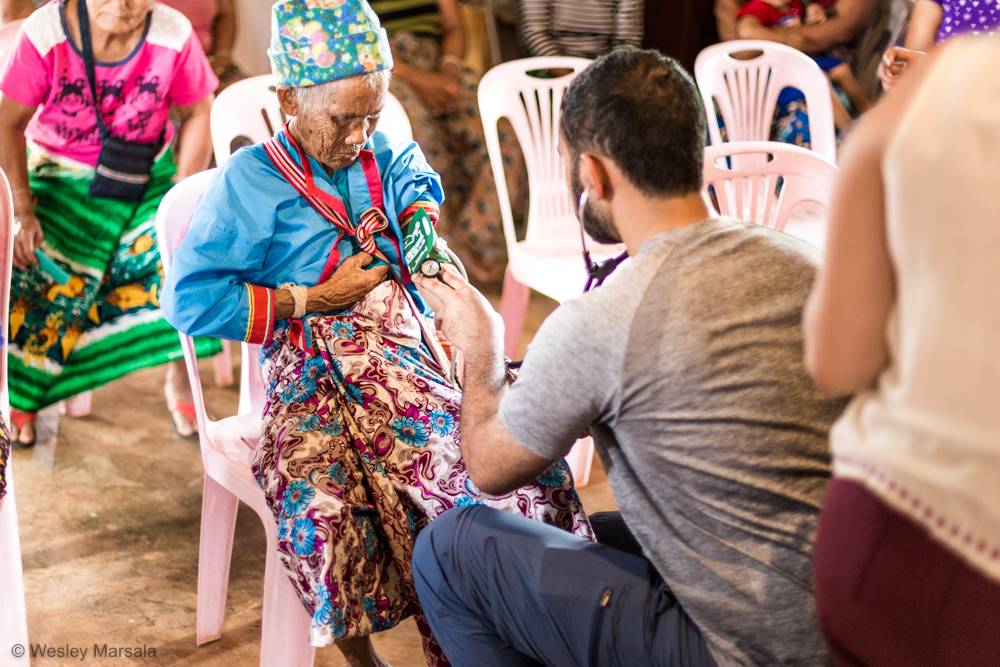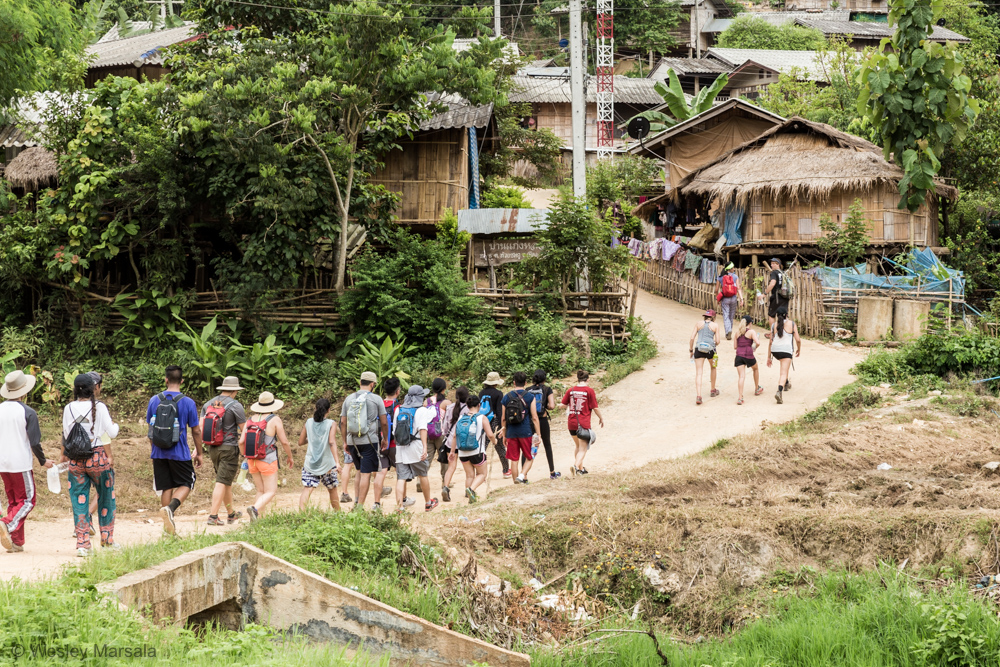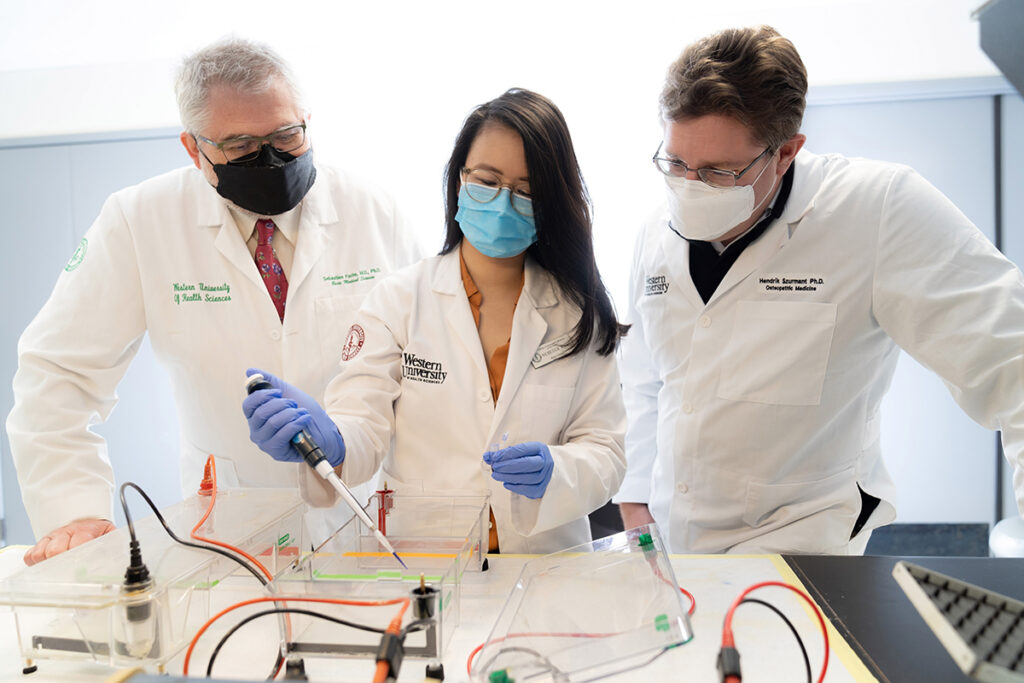
Non-communicable diseases (NCDs) are the leading cause of mortality worldwide and are on the rise. These conditions include chronic illnesses like diabetes, cancer, and chronic obstructive pulmonary disease (COPD)(World Health Organization (WHO), 2022). There are four primary risk factors for NCDs: tobacco use, harmful use of alcohol, lack of physical activity, and an unhealthy diet (PRB, 2012).

This increase in NCDs is especially alarming in low-income countries where communicable diseases and injuries are prevalent. According to WHO, 77% of all NCD deaths occur in low- and middle-income countries. This rapid rise may be due to quick and unplanned urbanization, globalization of unhealthy lifestyles, such as the rise in popularity of fast food, and an aging population (WHO, 2022).
However, not all hope is lost. The world is collaborating to work toward a resolution in the face of a challenging crisis. To combat the social, economic, and environmental causes of NCDs, the Small Island Developing States (SIDS) recently established the 2023 Bridgetown Declaration on Noncommunicable Diseases (NCDs) and Mental Health. For instance, they are funding initiatives to combat climate change and the numerous healthcare costs it brings with it, including the rise in pollutants and chronic lung disease.
Additionally, the action plans for people-centered eye care and oral health for the years 2022-2030 have been approved by the WHO regional committee for Southeast Asia. A global implementation roadmap was approved by WHO and other World Health Assembly member countries to quicken national responses, prioritize workable and effective interventions, and ensure timely and accurate national data on NCDs to hasten the fight against these diseases.
Thus, while the burden of NCDs is rising, we are not beyond hope. Our students are more than willing to take on the challenge. According to medical student, Sofia Davis, “Learning about non-communicable diseases as a Global Health Track student is crucial so that we have a greater understanding and knowledge base for future patients we may treat in the US and abroad. NCDs are something we will most likely encounter every day in our careers, but I hope to see and be a part of innovative solutions that will help our patients. Getting to witness the passion and creativeness of my peers, I know that more breakthroughs and resolutions will be discovered. Above all, the global rise of NCDs highlights the interconnectedness of health, environment, social factors, and community as well as how countries across the globe are linked together”. -Sofia Davis
In conclusion, NCDs present significant risks to worldwide health; therefore, international action must be taken to strengthen disaster preparedness and prioritize health for all.
Sources:
- Nikolic I.A., Stanciole A.E., and Zaydman, M., “Chronic Emergency: Why
- NCDs Matter,” World Bank Health, Nutrition and Population Discussion Paper (2011).
- PRB. “Global Burden of Noncommunicable Diseases.” Population Reference Bureau, www.prb.org/resources/global-burden-of-noncommunicable-diseases/. Accessed 23 Aug. 2023.
- WHO. “Non-Communicable Diseases.” World Health Organization. https://www.who.int/news-room/fact-sheets/detail/noncommunicable-diseases#:~:text=The%20main%20types%20of%20NCD,disease%20and%20asthma)%20and%20diabetes.
- World Health Organization: WHO. (2023, June 15). Small islands agree bold plan of action on noncommunicable diseases and mental health. www.who.int/. https://www.who.int/news/item/15-06-2023-small-islands-agree-bold-plan-of-action-on-health-and-climate-crises
- World Health Organization. Regional Office for South-East Asia. (2022b). Monitoring progress and the acceleration plan for NCDs, including oral health and integrated eye care, in the South-East Asia Region. https://apps.who.int/iris/handle/10665/363096. Accessed 23 Aug 2023.
- World Health Organization: WHO. (2022). World Health Assembly approves a global implementation roadmap to accelerate action on noncommunicable diseases (NCDs). www.who.int. https://www.who.int/news-room/feature-stories/detail/world-health-assembly-approves-a-global-implementation-roadmap-to-accelerate-action-on-noncommunicable-diseases-(ncds) . Accessed 23 Aug 2023.
- World Health Organization: WHO. (2019). Climate change. www.who.int. https://www.who.int/health-topics/climate-change#tab=tab_1
- World Health Organization: WHO. (2021). Climate change and health. www.who.int. https://www.who.int/news-room/fact-sheets/detail/climate-change-and-health
- Extreme heat in North America, Europe and China in July 2023 made much more likely by climate change – World Weather Attribution. (n.d.). https://www.worldweatherattribution.org/extreme-heat-in-north-america-europe-and-china-in-july-2023-made-much-more-likely-by-climate-change/#:~:text=July%202023%20saw%20extreme%20heatwaves,China%20(CNN%2C2023)
- Johnson, A. (2023c, August 15). What To Know About The Potential Health Risks Of The Maui Fires—From Birth Defects To Cancer. Forbes. https://www.forbes.com/sites/ariannajohnson/2023/08/15/what-to-know-about-the-potential-health-risks-of-the-maui-fires-from-birth-defects-to-cancer/?sh=7a11ad13147d
- Rush, C. (2023c, August 17). Maui wildfire survivors are confronting huge mental health hurdles | AP News. AP News. https://apnews.com/article/hawaii-wildfires-maui-lahaina-mental-health-a7ed87701c314224bd4b20f8575b4608
- Mae Czachor, E. (2023c, August 24). How did the Maui fire start? What we know about the cause of the Lahaina blaze. CBS News. https://www.cbsnews.com/news/how-did-maui-fire-start-cause-lahaina-hawaii-wildfire/
- GBD results. (n.d.). Institute for Health Metrics and Evaluation. https://vizhub.healthdata.org/gbd-results/


